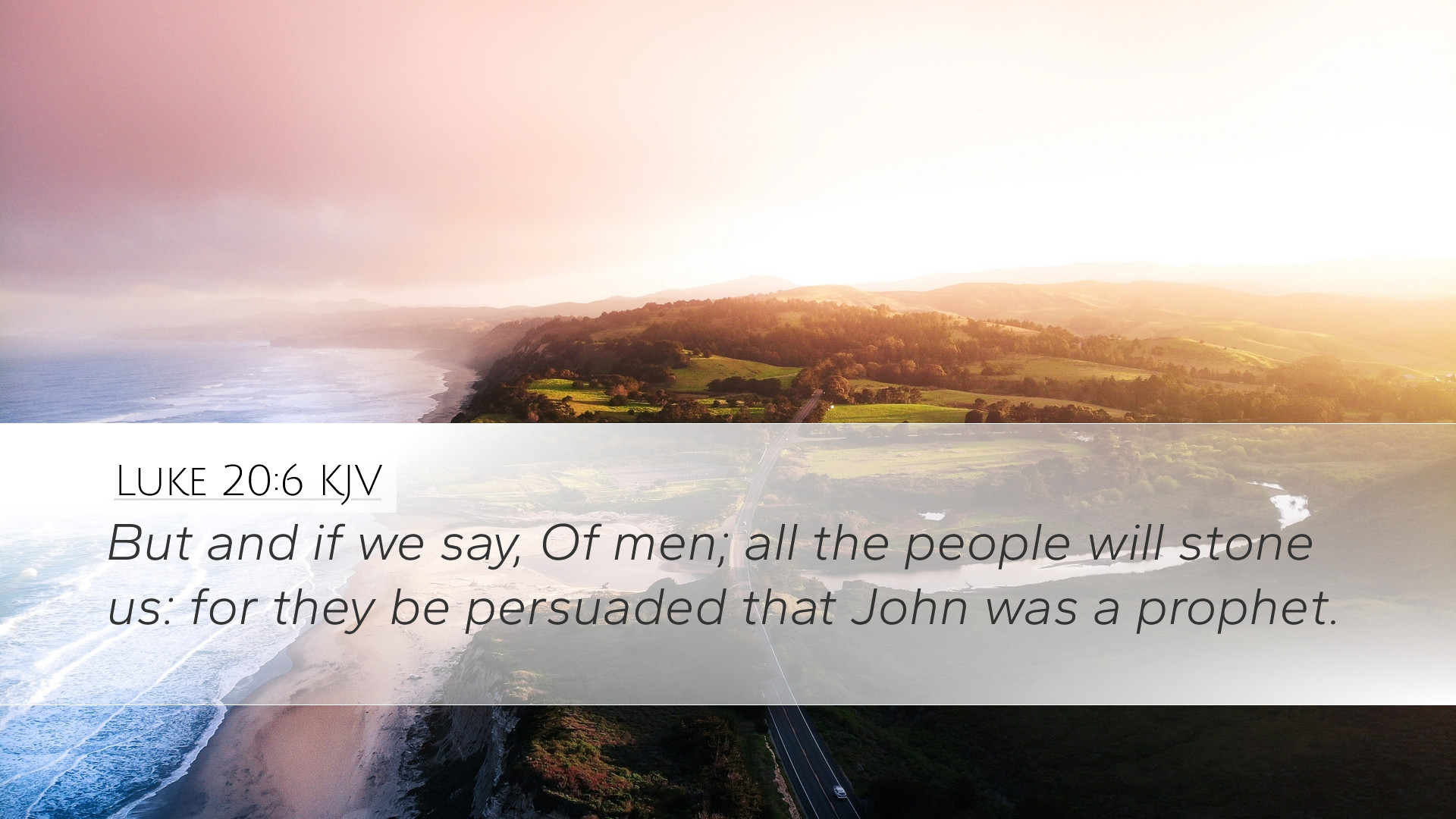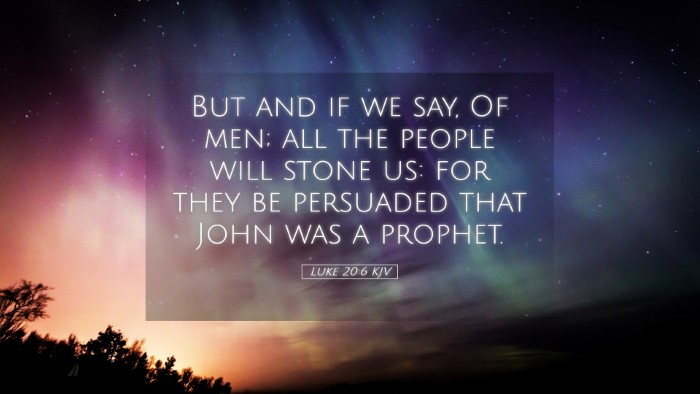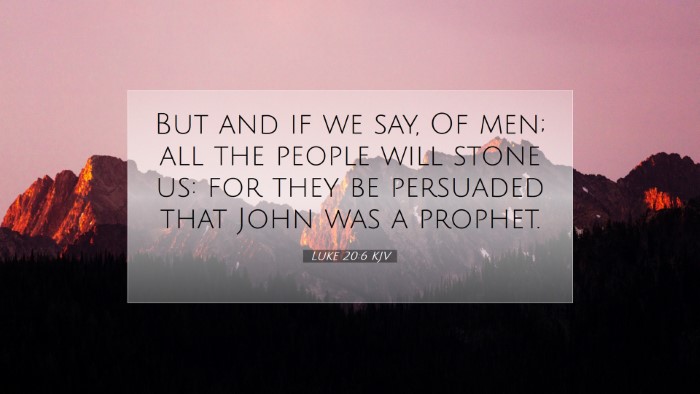Commentary on Luke 20:6
Bible Verse: "But if we say, 'From men,' all the people will stone us, for they are convinced that John was a prophet."
Introduction
The context of Luke 20:6 is pivotal in understanding the dynamics of religious authority and public perception during the time of Christ. This verse captures the fear of the religious leaders concerning the opinion of the people, particularly regarding John the Baptist. The verse is a part of the larger narrative where Jesus is confronted by the chief priests and scribes about His authority. The discussions around this verse reveal the tension between divine authority and human perception.
Insights from Public Domain Commentaries
Matthew Henry's Commentary
Henry observes that the question posed to Jesus by the religious leaders reflects their strategy to entrap Him. They recognize that any answer outside of their own authority could lead to severe consequences both for them and for Jesus. He highlights the leaders’ fear of the people’s reaction should they dismiss John’s prophetic ministry.
- Fear of the People: Henry notes that the religious authorities feared the people, indicating that public opinion held significant sway during this period. Their decision-making was not solely based on truth but was heavily influenced by the potential backlash from the populace.
- John the Baptist's Prophetic Role: Henry affirms that John was indeed a prophet, and the people's belief in his prophetic ministry made addressing this issue delicate for the leaders. The recognition of John as a prophet validated his role and mission and posed a threat to the established authority.
Albert Barnes' Notes
Barnes elaborates on the implications of the religious authorities’ reluctance to declare this truth openly. He emphasizes the tension between certainty in doctrine and the fear of public reception.
- Contradiction to Their Interests: Barnes indicates that to admit John’s prophetic status would undermine the authority of these leaders, who were positioned to gain from discrediting him. By avoiding the question, they sought to protect their interests rather than pursue truth.
- Public Sentiment: He points out that the people's conviction about John being a prophet was not merely an external observation but a deep-rooted belief that reflected their spiritual hunger and need for authentic leaders.
Adam Clarke's Commentary
Clarke provides a detailed analysis of the societal ramifications of the religious leaders' choices. He interprets this verse as an illustration of the constant struggles faced by religious leaders between personal gain and spiritual integrity.
- The Dilemma of Truth: Clarke stresses the dilemma the leaders faced—being honest might have exposed them to public outrage. It reveals a significant principle: the truth can often be sidestepped for fear of consequences.
- Spiritual Authority vs. Human Authority: Clarke emphasizes that this incident reflects a larger theme within Luke's Gospel: the clash between spiritual authority and human authority. This verse succinctly showcases how the former is often threatened by the latter.
Theological Implications
The implications of this text are profound for pastors, students, theologians, and scholars.
- Understanding Authority: The dynamics of authority in religious contexts are critically examined in this passage. It calls into question the legitimacy of authority that is maintained through fear rather than truth.
- Importance of Prophetic Voices: The text also invites a reflection on the importance of recognizing and adhering to prophetic voices within the community. John the Baptist’s role as a forerunner of Christ underscored the need for spiritual discernment.
- Challenges of Leadership: Leaders today must navigate the similar challenges that these religious leaders faced—staying true to the message of the Gospel while addressing the concerns and beliefs of the congregation they serve.
Conclusion
Luke 20:6 serves as a crucial reminder of the complexities involved in proclaiming truth in the face of societal pressures. As religious leaders, scholars, and students of the Word engage with this passage, the insights gleaned from the public domain commentaries illuminate the challenges of leadership, the power of public opinion, and the importance of recognizing and honoring prophetic voices in one's ministry. This verse ultimately challenges believers to remain steadfast in their commitment to Christ's authority over human expectations and societal norms.


